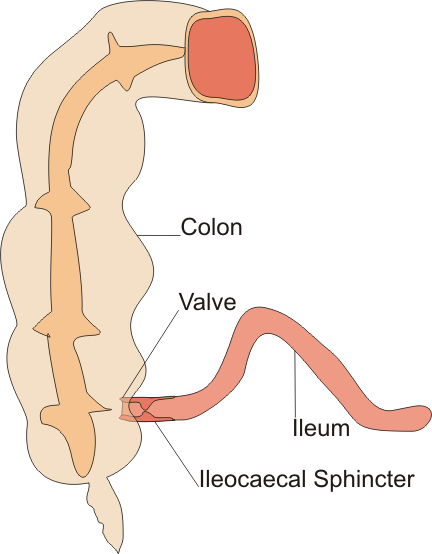-
 Non-opiate analgesic
Non-opiate analgesic
-
 Electric shock
Electric shock
-
 Granite
Granite
-
 Switching
Switching
-
 Radon
Radon
-
 Server
Server
-
 Symport
Symport
-
 Thalamus
Thalamus
-
 CRBPO / Centre for Research in Biology and Bird Population
CRBPO / Centre for Research in Biology and Bird Population
-
 Polyamide
Polyamide
-
 Vasodilator
Vasodilator
-
 Mutagen
Mutagen
-
 Vapour barrier
Vapour barrier
-
 Echocardiography
Echocardiography
-
 Variability in heart rate
Variability in heart rate
-
 Back-arc basin
Back-arc basin
-
 Barcelona Convention
Barcelona Convention
-
 Cave
Cave
-
 Interface
Interface
-
 DNA
DNA
-
 Blazar
Blazar
-
 Slip face
Slip face
-
 Pyrophosphate bond
Pyrophosphate bond
-
 Dengue fever virus
Dengue fever virus
-
 Oberon
Oberon
-
 Coryza
Coryza
-
 Nidicolous
Nidicolous
-
 Karyotype
Karyotype
-
 Humpback whale
Humpback whale
-
 Kerr black hole
Kerr black hole
Ileum
The ileum is an organ belonging to the digestive system.
Function of the ileum
The ileum is the third and final part of the small intestine that follows on directly from the jejunum and continues into the first part of the colon, the caecum. Its function is to continue to absorb nutrients, particularly water, vitamin B12, electrolytes (potassium, sodium…), and bile salts through its villi and microvilli. An ileo-caecal sphincter controls passage of the food bolus into the colon.
The ileum differs from other segments of the intestine as it contains Peyer's patches (aggregates of lymphoid tissue containing lymphocytes to provide immune protection) beneath the intestinal mucosa.
The pH of the ileum is neutral or slightly alkaline (between 7 and 8).
Structure of the ileum
The ileum is more than 4 metes long and is thinner than the jejunum. It is also paler in colour than the jejunum.
The ileum contains smooth muscles providing peristaltic movements.
 The ileum is the last part of the small intestine and opens into the colon at the caecum. © Wikimedia Commons
The ileum is the last part of the small intestine and opens into the colon at the caecum. © Wikimedia Commons
Latest
Fill out my online form.



